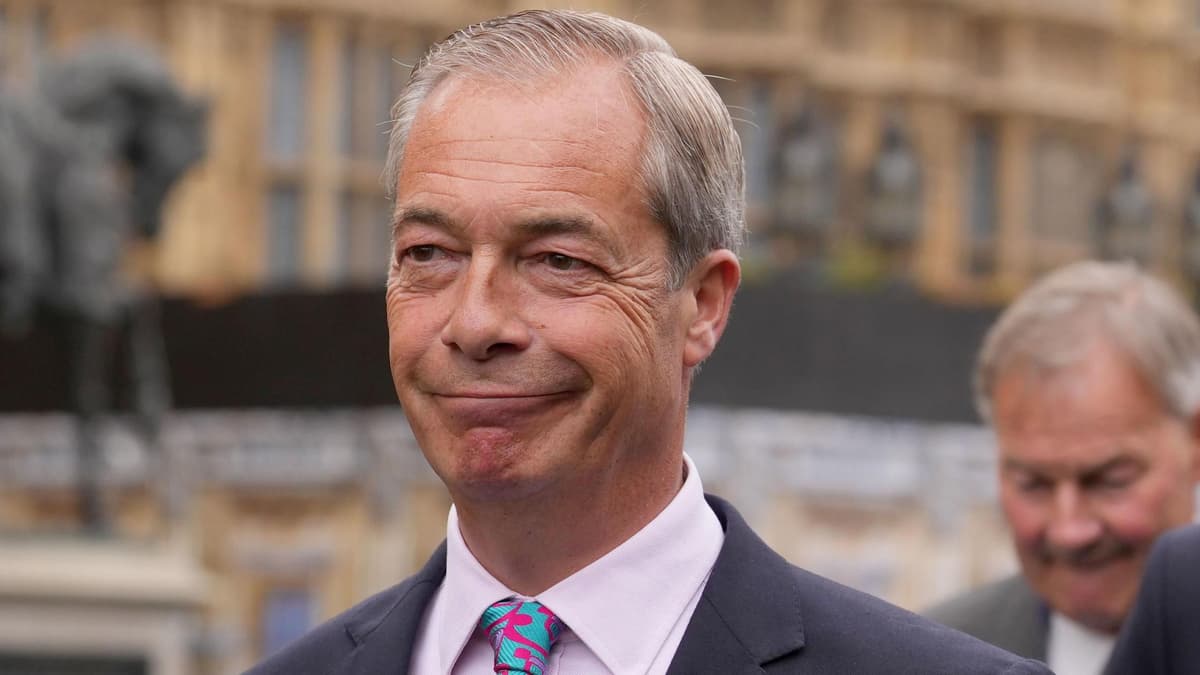
Nigel Farage set to be next prime minister, major poll suggests
by Andreas Ioannou
In the Cambridge Dictionary, the verb pivot is said to describe the movement of “turning” or “twisting”. If I were to say I pivoted away from a rather chirpy salesperson with a clipboard and an attitude, that would accurately describe my situation. If I were then to say I pivoted away from being at the helm of one of the most influential British political movements in a generation, and the leader of a major political party, to being the leader of another party - now the effective ‘government in waiting’ - that too would fit the description of a ‘pivot’. Now, although I find myself relating more to the former situation than the latter, there is a man, love him or loathe him, who has plastered himself on every crack, hole, and gap in British political discourse. That man is Nigel Paul Farage - although you’ll probably know him as ‘Nigel Farage’.
This man spent many of the 2010s and early 2020s as a formidable force in British politics. His policy against net migration, seen by some of his greatest critics as infantile, whilst extremely adored by others, garnered him immense support. It gave him a firm grasp on UKIP at the time, and it yielded him immense gains for a cause he’d spent most of his political life fighting for. Brexit.
Today, whilst that word is trapped in a rather traumatising bygone era, many would agree that, whether you sympathise with Farage’s views or not, or whether you voted in the referendum because of him or against him, he isn’t trapped in that era. No. In fact, he’s more influential, a greater threat to our two-party system, and a more formidable force today than he ever was.
Because Farage is one of the most well-known political figures in the UK. Again, he has made a substantial part of his political career about one of the most pressing issues among the electorate - immigration. Today, it’s seen as a bigger threat to the UK than the chance of us being obliterated by a ballistic missile from Moscow, or a pack load of drugs being smuggled from Malmedy. In fact, today, it’s seen as the most important issue facing the country by the average British voter. And who’s most trusted on “dealing” with immigration (essentially reducing net migration)? Nigel Farage and ReformUK.
That’s why I’m not surprised, nor should you be, that major political figures like Ed Davey are warning of “Farage’s Britain”, because there is a real chance that, if ReformUK doesn’t fight amongst themselves like the left, we could have something such as “Farage’s Britain”.
Even though crippling state services like the NHS in favour of private insurance or bankrupting the British state with a ‘mini budget’ on steroids that claims it’ll get hundreds of billions in abolishing net-zero environmental targets and withholding benefits from asylum seekers aren’t hugely popular, many polls, including today’s “groundbreaking” poll, show how that doesn’t matter. It doesn’t matter if some of those policies are fanatical, or if others have tremendously horrendous consequences for most of us - like replacing the NHS with a private insurance model, because, again, immigration is the central issue on many people’s minds.
And that’s why today’s “groundbreaking” poll, despite being incredibly revealing about where we’re heading, perhaps isn’t so groundbreaking. Because it paints a picture that, as Farage likes to boast, “hundreds of polls” have already said.
That we’re heading for a ReformUK government. That any opposition to ReformUK will be dispersed into tiny little chunks. Now, although this poll doesn’t predict an outright ReformUK majority, it seals their fate in government, either by a Tory/ReformUK-esque deal, or by relying on their theoretical majority, excluding the speaker’s seat and indeed the Sinn Fein seats (which are never taken). Indeed, if ReformUK MPs vote in unity, Farage will be the next person waving on the steps of Downing Street (after the next election).
That means the Conservative party will be reduced to rubble, and most of their heartlands will be swept away to Reform, whilst others will be given to the Liberal Democrats, and even the Greens because of more socially conservative environmentalists in favour of protecting ecology and natural habitats.
This means that ReformUK will win, according to this poll, 311 seats, the most seats ever gained at a general election.
Again, this projection, a projection that puts ReformUK on 311 seats, Labour on 144 seats, the Liberal Democrats on 78 seats, the Conservatives on 45 seats, the SNP on 37 seats and the Greens on 7, is no surprise. It’s no surprise for Keir Starmer, who has had one of the greatest falls in approval ratings of any PM this far into government.
Because just a year on from Starmer’s landslide victory, and a year since YouGov first predicted that Reform would have the most seats in Parliament, Labour has had mishap after mishap.
Which is why, despite the sample being a mere 13,000 people in size, this poll tells a long-told story about how the millions and millions of people, rightly or erroneously, view this government, and see ReformUK as its disinfectant.